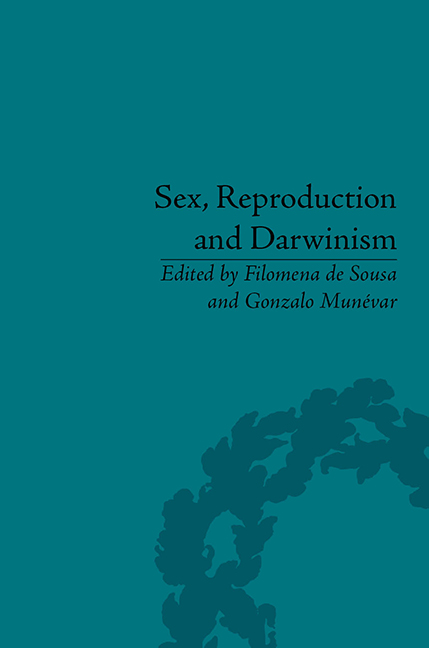Book contents
- Frontmatter
- CONTENTS
- Acknowledgements
- List of Contributors
- List of Figures and Tables
- Introduction
- Part I Reproduction, Mortality and Evolution
- Part II Reproduction without Sex?
- Part III Sex without Reproduction?
- Part IV Sexual Selection and Morality
- Part V Sex, Reproduction and Evolutionary Psychology
- Part VI Eugenics from Natural to Social Selection
- 12 Darwin's Care for Humanity
- 13 Reproduction and Social Selection: The Eugenics Maelstrom of Science, Intelligentsia and Reformers
- Notes
- Index
13 - Reproduction and Social Selection: The Eugenics Maelstrom of Science, Intelligentsia and Reformers
from Part VI - Eugenics from Natural to Social Selection
- Frontmatter
- CONTENTS
- Acknowledgements
- List of Contributors
- List of Figures and Tables
- Introduction
- Part I Reproduction, Mortality and Evolution
- Part II Reproduction without Sex?
- Part III Sex without Reproduction?
- Part IV Sexual Selection and Morality
- Part V Sex, Reproduction and Evolutionary Psychology
- Part VI Eugenics from Natural to Social Selection
- 12 Darwin's Care for Humanity
- 13 Reproduction and Social Selection: The Eugenics Maelstrom of Science, Intelligentsia and Reformers
- Notes
- Index
Summary
Introduction
This chapter explores the reasons why eugenics introduced anxieties that acquired particular salience in the current genomic era. I consider the origins of eugenics in Britain and ramifications in the United States by focusing on the dissemination and interpretation of eugenic ideas by leading scientists, intellectuals and social reformers in the period spanning from the inception of the movement to the early decades of the twentieth century.
Eugenicists understood sex and reproduction in ways that are not irrelevant to us. Many of the questions they raised are still not settled and resonate in current debates on biotechnology and reproductive genetics. These, which are surveyed in the last section of this chapter, suggest that the most vexing dilemma of eugenics is not the enhancement of the human species, but the creation of a biological hierarchy geared towards reproductive worth as a social good.
Reproducing for Social Benefit and Human Hierarchy
Throughout history, the manipulation of mating systems had always fallen short of its intended effect on the genetic makeup of populations. Francis Galton innovated by suggesting that heredity necessitated an underlying enduring structure. This shift in perspective provided the basis for a nativist project. Persuaded that heredity governed not only physical features but also mental traits, Galton began compiling in the 1860s genealogical treasuries of Britain's leading intellects, a source of data for elaborated statistical analysis of the transmission of human mental ability.
- Type
- Chapter
- Information
- Sex, Reproduction and Darwinism , pp. 195 - 214Publisher: Pickering & ChattoFirst published in: 2014



